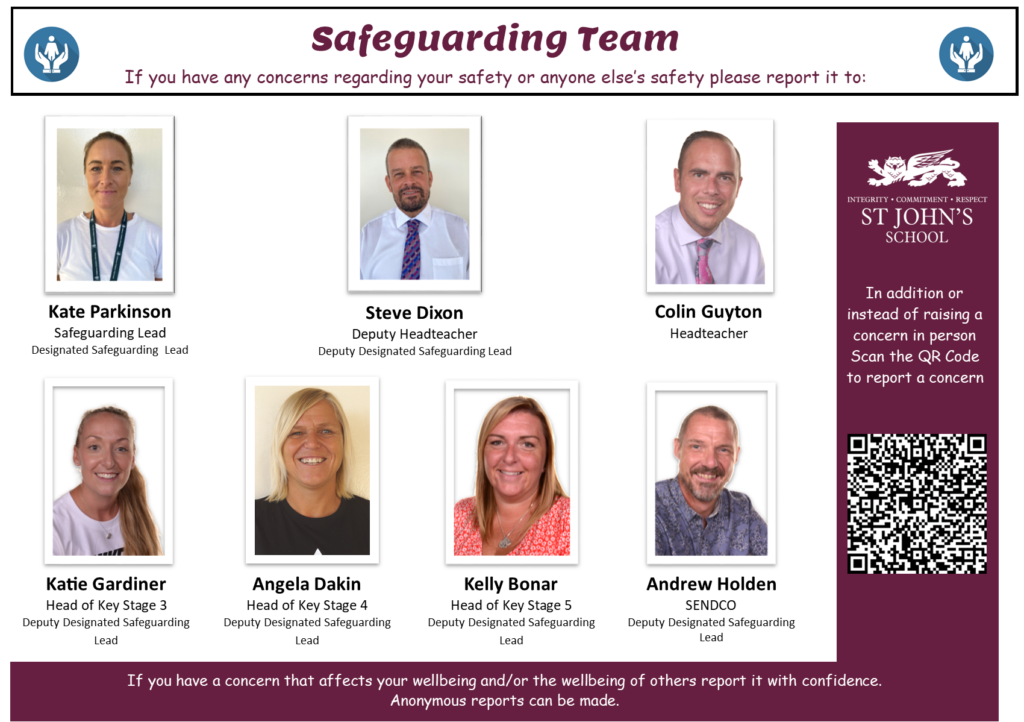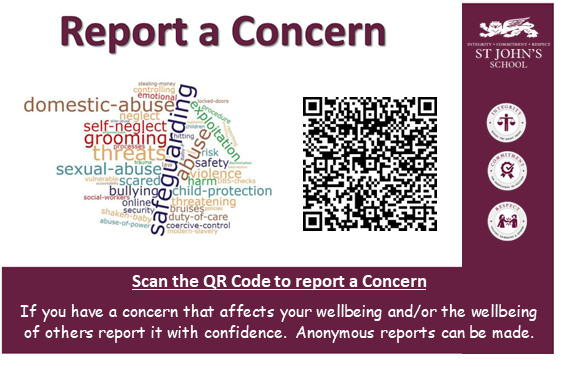St John’s School is committed to safeguarding and promoting the welfare and safety of all students and expects all staff and volunteers to share this commitment.
It is the primary responsibility of the school to ensure systems are in place to promote and support the health and wellbeing of students when at school or involved in school activities.
Using My Concern, we report and record any incidents. Safeguarding concerns are reviewed and actioned by our Designated Safeguarding Leads.

The school adheres to the following three DFE safeguarding documents:
- Working Together to Safeguard Children 2018
- Keeping Children Safe in Education 2022
- The Prevent Duty 2015
All staff are trained annually with weekly briefings.
Student raising safeguarding concerns
Students are encouraged to raise any concerns that they deem to affect their wellbeing or the wellbeing of others. They may do so in person to a trusted member of staff or by using the form that can be accessed with a St John’s School student email address through the use of this QR code.

Pastoral System
The school has a strong team of tutors with each Key Stage headed up by a pastoral leader. Tutors provide the first point of contact for any student who may be experiencing difficulties.
Supporting Pupils with Medical Conditions
St John’s School follows the DCS Directive on caring for any student with a medical condition. This may lead to the creation of an Individualised Health Care Plan. The school has a number of staff who are trained First Aiders.
External Agency Support
The school has a number of external agencies attached that are available to support students in a number of ways that can help health and well-being. These can be used to primarily affect academic performance or positively impact on health and wellbeing more directly. The agencies can be deployed to work with an individual or with families to help support students.
Advice and Support for Parents
- SBA Police Emergency Number: 112, if a child is at risk of immediate harm
- SBA Police Non-Emergency Number: 1443
- Cyprus Single Point of Contact: 00357 2596 3609
- British Forces Social Work Service (Episkopi): 00357 2596 3603
- British Forces Social Work Service (Akrotiri): 00357 2527 5838
- Episkopi Medical Centre: 00357 2596 3255
- Akrotiri Medical Centre: 00357 2527 6553
- SAFA School Nurse: 00357 2596 8065
- Head Teacher: Colin Guyton: 00357 2596 3234
- Assistant Chief Education Officer: Donna Simpson: 00357 2596 2888